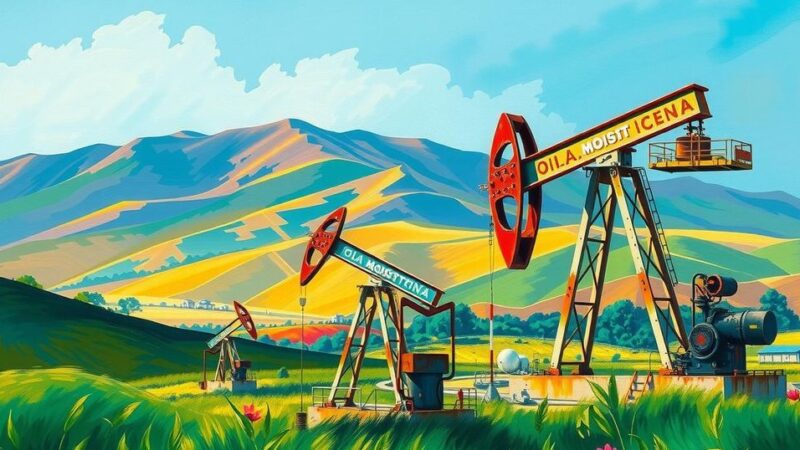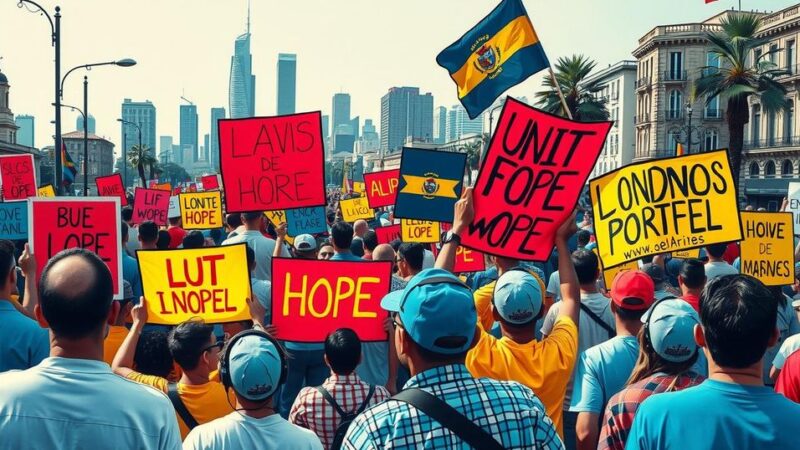The article discusses the interlinked crises of climate change and inflation, highlighting how extreme weather impacts agriculture, driving up prices and creating economic instability. Vulnerable populations in developing regions are particularly affected, while wealthier nations tend to experience lower food expenditure. The necessity for integrating climate change into economic policymaking is emphasized, alongside the importance of regional collaboration and global alignment in addressing these dual crises effectively.
The interconnections between the climate crisis and inflation are becoming increasingly evident as global inflation has surged, impacting the costs of essentials such as food, energy, and other basic goods. With global inflation dominating political discussions, especially in G20 countries, the rising cost of living creates tension against an urgent climate crisis that must not be overshadowed. Through extreme weather events caused by climate change, agricultural production is disrupted, driving up food prices as heatwaves, floods, and droughts not only devastate crops but also hinder supply chains and essential goods, exacerbating inflationary pressures worldwide.
The situations in Africa and Latin America illustrate how vulnerable populations suffer profound economic impacts from climate-related inflation. Here, food constitutes a considerable portion of household expenditure, leading to greater exposure to the economic toll of climate change. For example, in regions severely affected by droughts associated with El Niño, essential staple prices have risen dramatically, imposing financial strain on families already facing the threat of hunger, whereas wealthier nations often allocate a smaller percentage of their income toward food, positioning them in a better economic standing.
While discussions on climate change frequently prioritize emissions reduction and green growth, the focus must also encompass its economic implications on vulnerable communities, particularly as inflation disrupts established economic stability. A recent study predicts a significant rise in food inflation, driven by climate change, urging fiscal and monetary institutions to integrate climate risks into their economic strategies. Some central banks, such as the South African Reserve Bank and the Central Bank of Costa Rica, have begun recognizing these risks in their policymaking, underscoring the necessity of adopting a holistic view of economic policy to include climate change.
Collaboration between finance ministries and climate organizations is crucial in developing practical measures that mitigate the dual shocks of inflation and extreme weather events. Initiatives like the African Climate Foundation’s Adaptation and Resilience Investment Platforms offer solutions by incorporating climate data into economic planning, enabling nations to develop sustainable strategies. For example, following Cyclone Freddy’s impact in Malawi, ARIPs guided policymakers in identifying resilient economic strategies while addressing immediate recovery needs.
Regional cooperation can amplify efforts to tackle these crises by tailoring economic policies to local climate vulnerabilities. Platforms like the Inter-American Development Bank’s Regional Climate Change initiative exemplify how collectivism can foster effective responses to shared challenges. Moreover, a global alignment between economic and climate institutions is paramount, as evidenced by mechanisms like the European Union’s Carbon Border Adjustment that necessitate thoughtful policy designs to avoid negative ramifications on developing economies.
Countries like Brazil and South Africa hold a significant opportunity to advance a coordinated approach to these crises, influencing the global narrative surrounding inflation and climate change. Collective action is essential; neglecting it could exacerbate inequality and threaten sustainable economic stability. However, by devising integrated and equitable policy frameworks, policymakers can bridge the gap between addressing immediate climatic threats and ensuring long-term economic resilience.
The climate crisis, characterized by global warming and extreme weather events, presents a significant challenge to global economic stability. Over recent years, inflation has surged, disproportionately affecting vulnerable populations, particularly in developing regions like Africa and Latin America, where food security is deeply intertwined with the climate. Understanding and addressing the economic implications of climate change—and how these two issues intersect—is crucial for achieving sustainable growth and resilience. As inflation rises, it threatens to overshadow the urgent narrative regarding climate action, highlighting the necessity for integrated approaches in policy design. Furthermore, the emerging recognition among financial institutions of climate-related risks marks a progressive step toward incorporating climate considerations into broader fiscal and monetary policies.
In summary, the relationship between the climate crisis and inflation demands urgent attention from policymakers globally. The rising costs of essential goods—exacerbated by climate change—pose significant risks to economic stability and exacerbate inequalities, particularly in vulnerable communities. By integrating climate considerations into economic frameworks and fostering regional cooperation, the potential to address these simultaneous crises is paramount. Both immediate and long-term strategies must be developed to mitigate risks and enhance resilience, demonstrating the crucial need for coordinated global action to confront the challenges posed by inflation and global warming.
Original Source: koreajoongangdaily.joins.com






